Spy poisoning: Russian media accuse West of 'crusade'
- Published
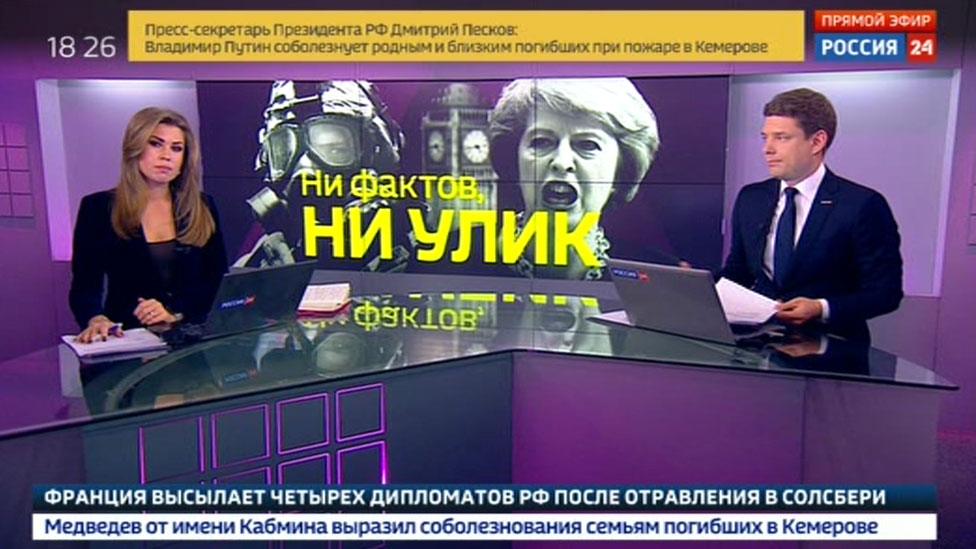
Rossiya 24's graphic declares, ' No facts, no evidence'
Russian media have reacted with sarcasm and anger to the mass expulsion of diplomats from the US, Canada and some European states.
The main national TV channels unanimously echoed the Kremlin line, suggesting that the incident in Salisbury was being used merely as a pretext.
More than 100 Russian diplomats from more than 20 countries were expelled in the wake of the poisoning of former spy Sergei Skripal and his daughter.
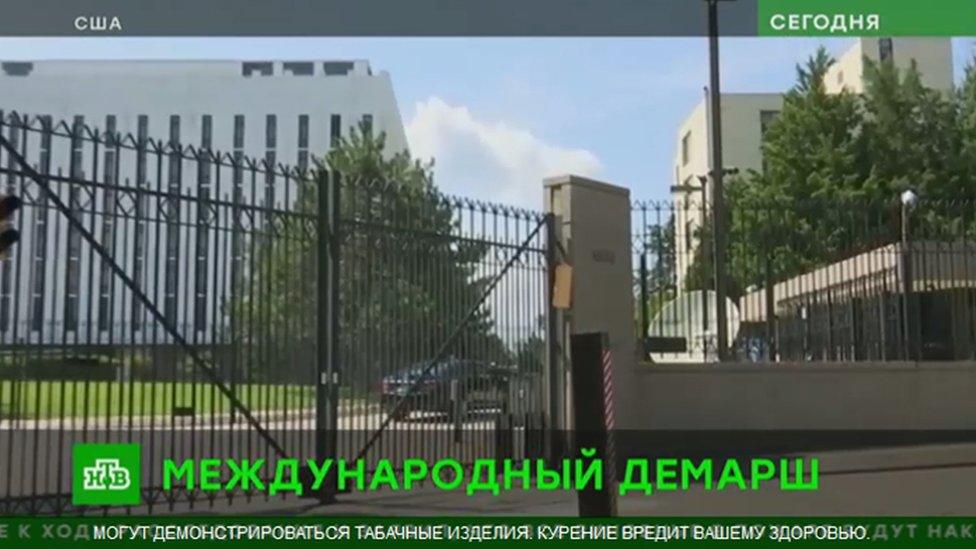
NTV's caption says 'International Démarche' in response to the expulsions
"The reason they give is Skripal's poisoning, even though Moscow is still waiting for proof of Russia's involvement," NTV, one of Russia's main three TV channels, said.
'Utter claptrap'
Over on state-controlled Channel One, top presenter Kirill Kleimenov was full of sarcasm. Commenting on PM Theresa May telling the parliament that Russia had "a combination of the capability, the intent and the motive" to poison the Skripals with a toxic agent, he said: "They could have simply expelled the diplomats, but no: they invented this utter claptrap about some combination!"
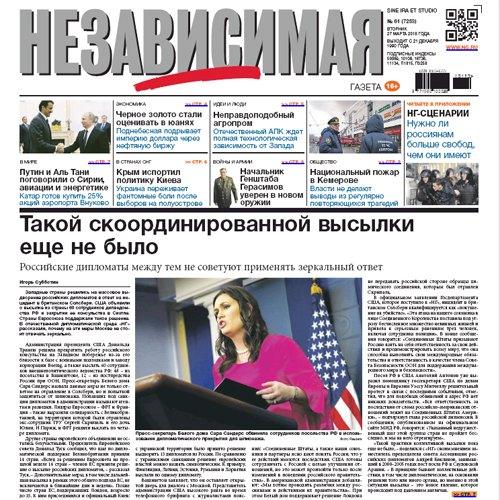
Nezavisimaya Gazeta's headline says, 'There has never been such a coordinated effort to expel diplomats'
The subsequent report reserved more sarcasm for the US, which "hastened to show so-called solidarity on the largest scale" with the "biggest expulsion in its history".
Official state Rossiya 1 TV described the move as a "co-ordinated demarche" and mocked Ukraine in particular for its "unbidden enthusiasm" in expelling 13 Russians.
Anti-Russian 'crusade'
The diplomatic tensions were also a highlight on prime-time talk shows on state-controlled TV last night. Both guest and hosts reacted angrily to the expulsions, suggesting they were part of an anti-Russian campaign orchestrated by the US and UK.
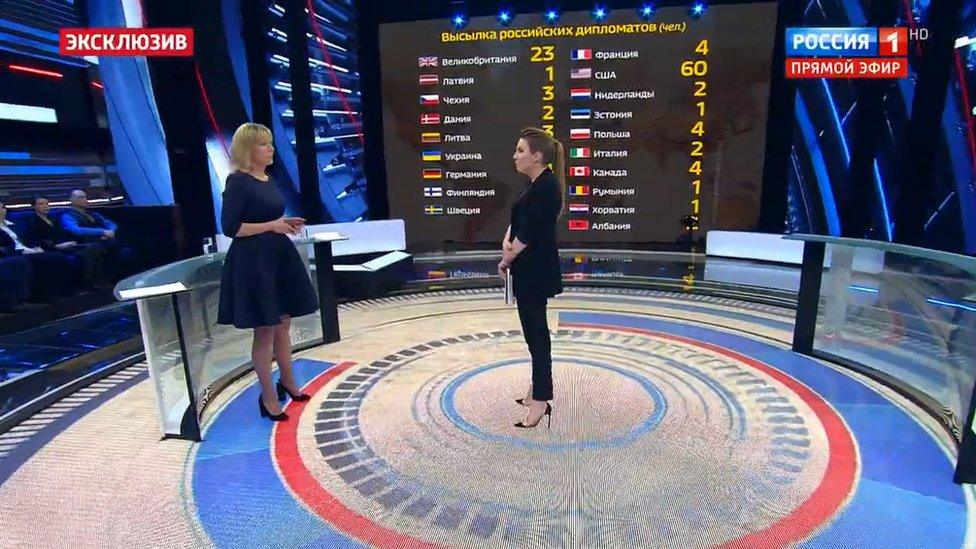
Russian Foreign Office spokesperson Maria Zakharova (L) appeared on this TV talk show to discuss the expulsions
"This looks not just like war, but of a crusade against Russia," Konstantin Blokhin, an expert from the Russian Academy of Sciences told a show on state TV's Channel One.
Andrei Bezrukov, a lecturer at the Moscow State Institute of International Relations, echoed the sentiment, alleging that the Skripal poisoning has nothing to do with the expulsions.
"What we see here reminds me of the Breughel painting, 'The blind leading the blind', the way they go one by one into the pit, into the water there. One country in the EU, Great Britain, is dragging down the others," he said on a show on another state TV channel, Rossiya 1.
'Full-fledged cold war'
The rhetoric was less bellicose in business newspapers, which pondered the prospects of Russia-West relations in the wake of the latest escalation.
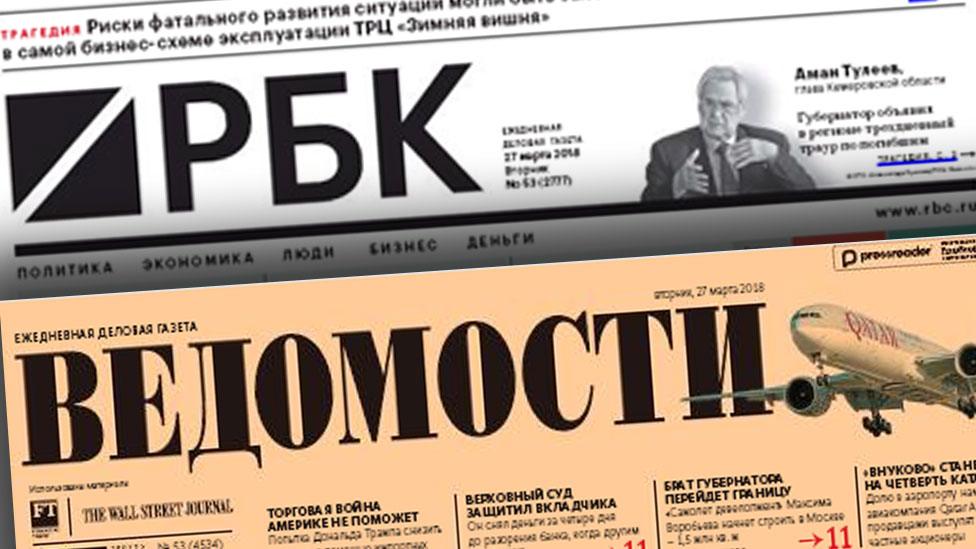
RBC and Vedomosti were equally downbeat in their analysis
Pundit Maxim Suchkov told RBC daily the the expulsions will "spin the flywheel of the confrontation" and result in a flood of tit-for-tat measures.
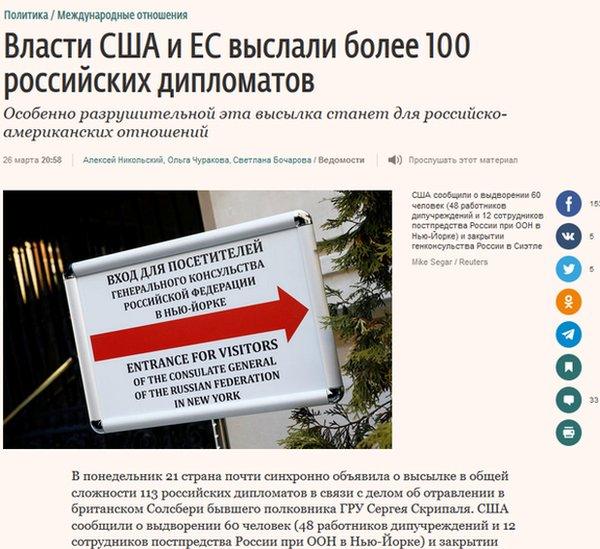
Vedomosti says the diplomats' expulsion will be damaging for Russia-US relations
Expert Fyodor Lukyanov's analysis was equally pessimistic. Russia's likely response "will not put an end to the escalation", he told Vedomosti, an influential business daily, adding: "Relations between Russia and the West have entered a period of a full-fledged cold war."
BBC Monitoring, external reports and analyses news from TV, radio, web and print media around the world. For more reports from BBC Monitoring, click here. You can follow BBC Monitoring on Twitter, external and Facebook, external.
- Published27 March 2018
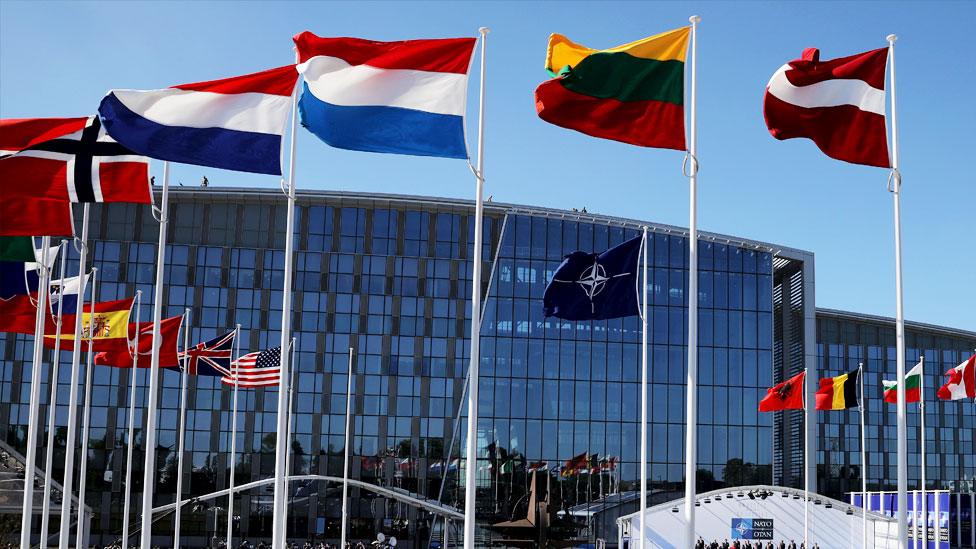
- Published26 March 2018
- Published26 March 2018
- Published25 March 2024
